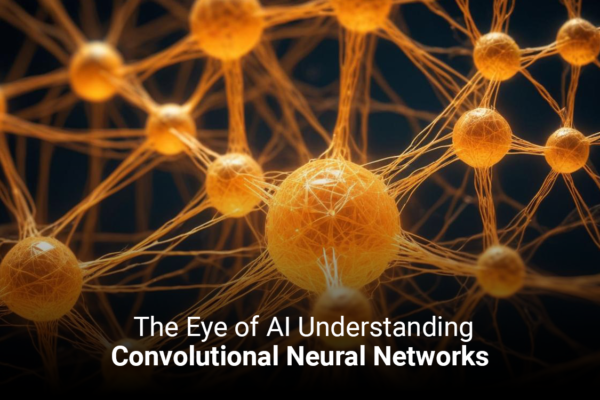In the intricate world of B2B transactions, emotions often play the role of an undercover agent, quietly shaping the narrative from the shadows.
Emotion AI, also known as Affective Computing, strives to bridge the gap between human emotion intelligence and the seemingly logical realm of AI. It employs technologies to recognize, understand, and simulate human emotions, promising a more nuanced and humanized approach in the otherwise data-driven B2B landscape.
Recent insights underscore that B2B purchasers are nearly 50% more inclined to purchase when they perceive personal value, leading to confidence in their choices and positive career impacts. This highlights the profound influence of emotions on buying decisions, shedding light on a crucial aspect often overshadowed by the cold logic of traditional analytics.
Emotion AI: Unraveling the Technology
Emotion AI represents an avant-garde technological evolution, enabling developers to program complex systems to recognize intricate signals in the human voice representing as many as 50 unique emotions.
Decoding Emotion AI and Its Mechanisms
- Emotion AI involves machines interpreting and responding to human emotions.
- Mechanisms include facial expression analysis, voice tone recognition, and physiological cues.
- Algorithms translate these cues into emotion states, providing a nuanced understanding of user sentiment.
Sephora’s Virtual Artist App boosts customer experience with AI and Augmented Reality. Customers virtually “try on” makeup, scanning their faces to visualize product compatibility. This interactive tool informs purchases and adds a playful touch to online shopping.
Unveiling the Power of NLP in Sentiment Analysis
- Natural Language Processing (NLP) enhances Emotion AI by deciphering textual data.
- Analyzing language patterns, sentiment, and context to gauge emotion nuances.
- NLP empowers Emotion AI to comprehend and respond to the intricacies of human communication.
A European bank with Behavioral Signals boosted call center efficiency using emotion AI. Analyzing voices and reactions through natural language processing, AI-enabled matching routed calls based on CRM data. Result? An ~11% improvement in call success by aligning customers with the right agent.
Differences Between Emotion AI vs. Traditional B2B Analytics
- Quantitative Focus: Traditional B2B Analytics primarily relies on quantitative metrics such as sales figures and revenue, often missing the subtleties of emotional nuances in customer interactions.
- Nuanced Insights: Emotion AI goes beyond surface-level data, providing nuanced insights into emotional responses, allowing businesses to understand customer sentiments on a deeper level.
- Limited Context: B2B Analytics may lack context around customer emotions, potentially leading to an incomplete understanding of client satisfaction and hindering the development of effective strategies.
- Personalization Potential: With Emotion AI, businesses can personalize interactions based on emotional cues, creating more tailored and resonant customer experiences.
The Influence & Benefits of Emotion AI in B2B
A global study by B2B agency Gyro and The Financial Times substantiates the profound influence of emotion in B2B purchasing decisions. The validation underscores that confidence, optimism, and the ability to trust a supplier-partner are pivotal forms of emotion capital for B2B brands. This insight lays the foundation for examining how the implementation of emotion AI can enhance the customer experience within B2B companies.
Personalized Selling Through Emotion Insights
Emotion AI becomes a silent observer in digital sales meetings, capturing prospect reactions. Sales reps leverage these emotion insights to tailor follow-ups, aligning communication with prospect desires. The result is not just increased personalization but elevated, memorable customer experiences.
Amplifying Sales Team Performance
Identifying pain points and sweet spots through emotion AI equips sales reps with valuable insights. Modern AI techniques, including FACS (Facial Action Coding System), eye tracking, and head positioning, are analyzed to streamline efforts. This leads to a boost in overall team efficiency, increased conversions, and higher sales.
Remote Selling Revolution: Lead Filtering with Emotion Profiling
The post-pandemic shift to remote selling is deemed more effective, and emotion AI refines lead filtering by assessing emotion responses. Prioritizing efforts towards emotionally engaged prospects results in increased conversion rates in the B2B market.
Nurturing Client Relationships Through Emotion Intelligence
Building meaningful relationships becomes an art with Emotion AI insights. Personalized recommendations aligned with prospects’ emotion states strengthen trust and credibility, paving the way for long-lasting client relationships. The outcome is not just enhanced loyalty but increased profitability.
Predicting Sales Futures: Emotion AI in Sales Forecasting
Emotion AI is a gateway to understanding customer emotions and guiding improvised sales strategies. Addressing customer emotions increases satisfaction and higher sales, revolutionizing sales forecasting through emotion intelligence.
Conclusion
B2B marketers must embrace Emotion AI as a dynamic companion in their quest for customer-centric excellence. The future demands continuous innovation, adaptation to emerging trends, and a commitment to integrating Emotion AI seamlessly into marketing strategies.
In this era of heightened connectivity, where emotion resonance defines brand loyalty, Emotion AI stands as a beacon, guiding B2B marketers towards a future where each interaction is not just transactional but an emotion journey, creating lasting impressions and driving unparalleled success. The road ahead is illuminated by the promise of Emotion AI, inviting marketers to step boldly into a realm where customer experiences are enhanced and emotionally enriched.
Source
Emotion in B2B buying: The evidence. LinkedIn. (n.d.). https://www.linkedin.com/business/marketing/blog/content-marketing/emotion-in-b2b-buying#:~:text=B2B%20purchasers%20are%20almost%2050,a%20premium%20for%20that%20product
Ai-MC Case Study for Financial Group – behavioral signals. Behavioral Signals – The fastest evolving robust emotion AI engine. (2022, May 12). https://behavioralsignals.com/ai-mediated-conversations-case-study-for-financial-group-bank/























